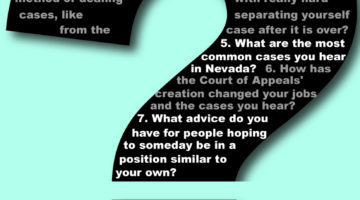Nobody is allowed to touch my phone because, due to the unhealthy amount of time I have spent on my phone, it has become an extension of my private life and my mind.
My phone is a diary (notes), a scrapbook (photo album), a timeline of my queries (search history), a bank statement (Venmo and banking app), and many other things. If someone were to look through my phone (please don’t!) they would learn a whole lot about me. This is why I keep it locked down and under constant guard like the Mormon Church’s secret vaults.
Being inside my phone is like being inside my home, looking through all my things and maybe even taking a peek inside my thoughts. I imagine many of you would feel the same way.
This is why the police want to have access to a criminal’s cellular device when investigating a crime, because they can learn many valuable things from a criminal’s phone.
Obviously, the police don’t want your phone to read your drunk notes or see how your Snapchat streaks are holding up. They want to find practical evidence about a case, possible accomplices, future plans of crimes, where a suspect was tweeting from while a crime was being committed, etc.
Whether the police have a right to do that could be decided at the Supreme Court, starting this week in the case Carpenter v. United States. In 2013, Timothy Carpenter was convicted of leading a series of armed robberies of cell phone stores in Detroit, and some of the most incriminating evidence came from the data showing his location during specific robberies provided by his cell phone provider. Police didn’t have a warrant to obtain this information, so Carpenter is arguing that his Fourth Amendment right, protecting him from unreasonable searches and seizures, was violated .
This particular case isn’t necessarily about accessing phones themselves but about using phone records. However, it’s part of the ongoing debate about whether authorities have any jurisdiction in the world of smartphones. The Carpenter case is along the same lines as the Apple/F.B.I. argument over the San Bernardino shooter’s iPhone last year. Apple won that debate and didn’t hand over access to the shooter’s phone.
It’s a classic case of right to privacy versus the reach of the government’s power to catch bad guys. One side would say that searching a private citizen’s phone is an invasion of privacy. The other would say that phones are now too valuable in investigations to remain protected. I belong to the former group.
Authorities might catch a lot of bad guys by inspecting phones. They might catch all the bad guys in the world (including all the anonymous sexual harassers who may have slid into some direct messages), but still, law enforcement should not have the right to search our phones, for the reasons already described. Our phones are extensions of ourselves, and nobody should have a right to look at that. Especially not you, Bishop Gorman High School administration, who is probably still forcing students to unlock their confiscated phones so they can search for autumn leaf and beer mug emojis in text messages.
Just like when I signed my privacy rights away to a tyrannical Catholic school administration, allowing our phones to be searched by law enforcement would be a slippery slope to who-knows-what kind of invasions of privacy.
Don’t authorities already have the right to acquire many of your personal things, you might ask? Yes, like if your mom said you had a diary where you wrote down all of your plans to slash all of your Catholic school dean’s tires, they might request a warrant from a judge to get their hands on that diary. That’s fair, but feasting their eyes on the thing that is with me every second of the day and records almost every thought and interaction I have (sort of an exaggeration but not far off) is a different story.
The Carpenter case is mostly uncharted waters for the Supreme Court. A cell phone used to be a tool for making phone calls on the go and not much more. Even revealing phone records then would’ve been an invasion of privacy. Maybe you were making phone calls at a place you shouldn’t have been, according to your significant other (because you were buying them a surprise gift or something like that). Now, we find an even crazier set of data that tracks us daily, whether we know it or not. I’d prefer to not have that information on an evidence board in a courtroom. And, let’s not forget that, yes, criminals have rights too in this country.
Where we go, who we’re with, what we write down and how many times in a week we order UberEATS is private information. If law enforcement need to know that information, they should find different means because cell phones might as well be attached to our arms now, and it’s only going to get worse. I’ve heard the newest generation is the worst yet.










